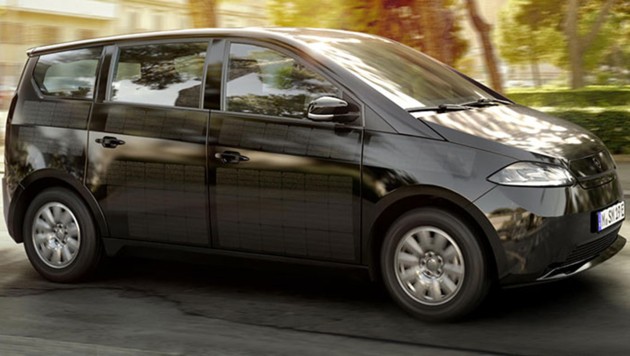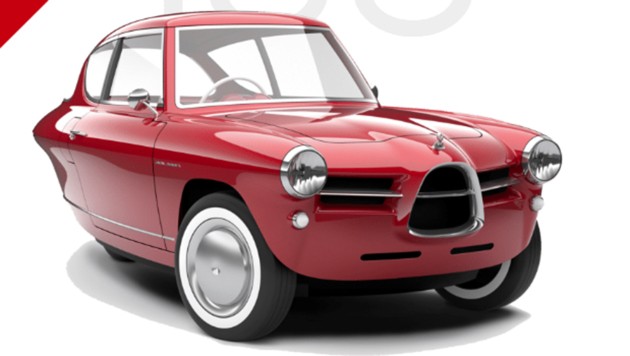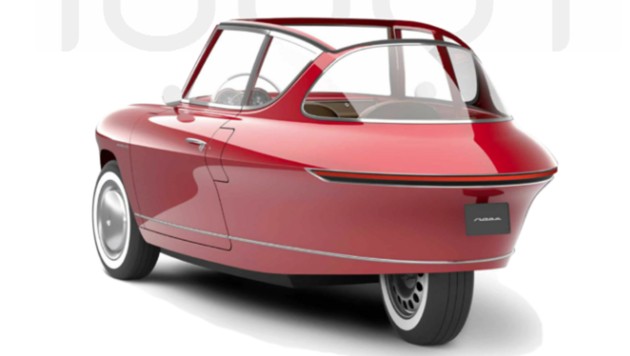Time and again in car media about new brands and new e-car projects are reported, which compete with much fanfare for investor funds. After that, however, it often gets quiet around the ambitious start-ups.
For about ten years, it has been fashionable to promote new product ideas on online platforms such as Kickstarter or Indiegogo and to collect the necessary investments for a start of production there. Crowdfunding is the name of the young form of financing, which has already provided for some success story, but also for some flops and correspondingly frustrated investors. Not without risk, among other things, the investment in a complex industrial product like a car appears. But the meteoric rise of the former start-up Tesla has probably made many feel: Everything is possible.
This success story has meanwhile persuaded some people to compete by crowdfunding for investments in new electric car brands. It is often started with euphoria, then it is calmer, sometimes even quiet. But some of these e-car startups could make a breakthrough. In most cases, however, customers and financiers must be patient, as the final market launch will be protracted.
Minimal van with electric drive
This is true, among other things, of the e-car project Sion initiated by the start-up Sono Motors in Munich in 2016. It is clearly one of the flagship projects within the e-car crowdfunding scene. The original idea was the production of a vans only 12,000 euros with built-in photovoltaic system, which should even allow a charging infrastructure independent operation. This concept generated crowdfunding a six-figure amount, which in 2017 allowed the presentation of a prototype and even the first test drives.
Since then has been vigorously developed and unfortunately also turned on the price screw. With a battery, the van will cost according to the latest information from 25,500 euros. The latest pictures of the final production version seem promising. The same applies to the partners, as Bosch and Continental, among others, are involved in the project. Also the question of the production location is clarified: In the former Saab factory in the Swedish Trollhättan, which belongs today to the company NEVS, the Sion in larger numbers of the tape should run. After all, there is a lot to work off, because more than 10,000 reservations should already be available. The potential buyers, however, have to wait a little while, because the market launch date announced in the meantime for 2019 has since been postponed to the second half of 2020.

Promising microcar
Speaking of Sweden: Here is another promising crowdfunding story. Uniti is the name of the young project, which aims to build a particularly efficient and in many respects technically advanced small electric car. The idea of the One was so enthusiastic that crowdfunded millions of dollars came together. This sum provided the start-up of a university project with the resources needed to develop prototypes. In addition, industry figures such as Siemens, E-On or Kuka are now involved in Uniti. With the production of between 15,000 and 20,000 euros expensive two-seater will start this year. A pilot factory is to be built in the English Silverstone. The One will also be built in licensed factories in Australia and India.
Autonomous Lightyear sedan will arrive in 2021
Like Uniti, the electric car start-up Lightyear was created in a university environment, in this case in the Dutch TU Eindhoven. The electric car, also known as One, is, unlike Uniti, a large, five-meter-long sedan that can be driven thanks to its lightweight construction, aerodynamic design and solar cells integrated into the outer shell with particularly low fuel consumption and independent of charging infrastructure. This idea came to investors and flushed by crowdfunding more than five million euros in the war chest of the young company. Meanwhile, there is a near-series prototype and concrete plans for the construction of a plant on the Automotive Campus in the Dutch Helmond. However, this factory should allow only modest quantities, which considering the purchase price of around 150,000 euros for the One is also the right approach. 2021, so the announcement only a few weeks ago, first vehicles in customer hand over.

“Nobe” still lacks the money for production
Without any special technical achievements, the E-car start-up Nobe from Estonia has recently made speeches. Here, above all, the charming retro design in the foreground, which also equipped in 2018 in a first round of financing, the start-up with the means to build prototypes, which could be admired, inter alia, in the spring of 2019 at the Geneva Motor Show. Meanwhile, Nobe invites interested parties to Tallin to test rides with the 100 electric tricycle mentioned. In addition, the blessed with a lot of ’50s charm car at prices from around 37,000 euros already ordered. By 2020 you want to deliver. The young company has recently launched another crowdfunding initiative to raise the money needed to build a manufacturing facility.
Not everything is successful …
There are still a number of other e-car projects in which investors were paid online for investment money, but where the breakthrough to the actual mass production is coming. At any rate, startups like Sondors, Eli, Alcraft, iEVX or Absolute Design have become suspiciously quiet. But in some already dead believed project is often still life. This is true, for example, of the Finnish company Toriodion, which made itself famous several years ago with the incredibly fast sports car 1MW. After all, a real and interesting car was presented, which should come after first plans in 2018 on the market.
As is so often the case, there are problems that are poisonous for ambitious schedules. The money is usually also scarce. As reported by the online edition of the Finnish television station Yle, a renewed round of financing was launched in the summer of 2019 to accelerate the development and launch of series production. The Finn Pasi Pennanen wants to make his 1MW in 2020 anyway in series.



